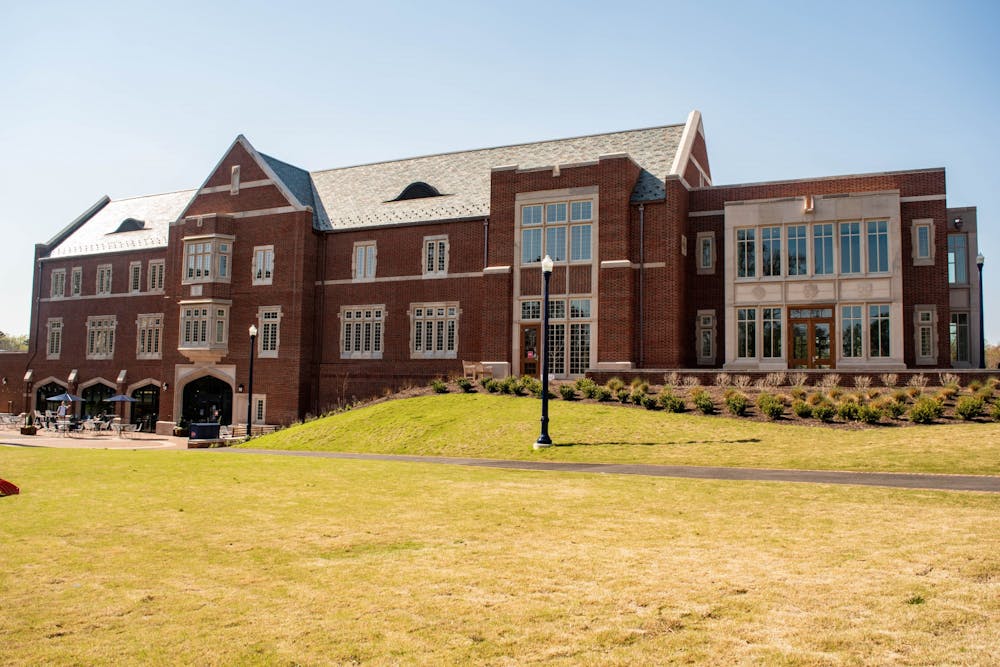The University of Richmond’s response to a potential spike in three respiratory illnesses–COVID-19, Influenza and Respiratory Syncytial Virus (RSV)–could affect classes and campus events this semester.
Scientists from the Institute for Health Metrics and Evaluation are expecting to see an increase in COVID-19 cases this month, Kathryn Jacobsen, a UR Health Studies professor and epidemiologist, wrote in an email to The Collegian. This increase will likely be smaller than the omicron-driven spike last January, Jacobsen wrote.
Students are still required to isolate following a positive COVID-19 test and must inform their professors immediately of the dates they are required to quarantine, Sunni Brown, director of media and public relations, wrote in an email to The Collegian.
COVID-19 test kits are available for pickup from the Center for Student Involvement and the URPD Communication Center, but are limited to one box per person at a time, Brown wrote. Students who have been a close contact with someone who tested positive may pick up two boxes at a time, Brown wrote.
Because of limited supplies, the university requested that students only pick up test kits if they have symptoms consistent with COVID-19, Brown wrote.
UR is monitoring other respiratory illnesses such as the flu and RSV, but the current policy does not go beyond encouraging students, faculty and staff to stay up to date with COVID-19 and flu vaccinations, she wrote.
RSV is a respiratory infection with cold-like symptoms. RSV is commonly prevented with frequent handwashing and the use of face masks, Jacobsen wrote.
Virginia saw an early surge in RSV and a subsequent increase in hospitalizations, Emily Rich, a COVID-19 epidemiologist for the Richmond and Henrico health districts, said. Healthcare providers can administer a test for RSV if they suspect their patients are infected, but there is not currently an approved RSV vaccination, she said.
Flu season has also begun in Virginia with high case rates, Rich said. Students can still get updated COVID-19 boosters and flu shots to prevent infection.
“For COVID and flu, the absolute best thing you can do is stay up to date on your vaccinations,” Rich said. “RSV doesn’t have a vaccine, but the same mitigation measures you might take for COVID or flu are going to help with RSV as well.”
RSV, which is most severe for children, could have increased in part because of COVID-19 precautions, Jacobsen wrote.
“The number of cases of RSV among young children may be higher than typical this year because widespread use of facemasks and social distancing protected infants and toddlers from RSV during the early years of the COVID pandemic,” she wrote. “They, therefore, did not develop infection-induced immunity to the virus.”
Enjoy what you're reading?
Signup for our newsletter
Public health organizations are monitoring rates of all three infections, working with hospitals, and distributing information to the public, Rich said.
Jacobsen has adapted her classroom’s attendance expectations to encourage students to stay home when sick, she wrote:
“The word ‘presenteeism’ describes people choosing to work or attend classes while sick, even though they are unlikely to be productive and may infect their coworkers and classmates,” she wrote. “I’ll be asking my students to stay home when they have symptoms of a respiratory infection or have recently tested positive for influenza or COVID.”
N95, KN95 and surgical masks can be picked up in the same locations as test kits, but are also limited to one box per person, according to the university’s COVID-19 support center. The URPD Communication Center is in the Special Programs Building, open seven days a week, 24 hours a day. The Center for Student Involvement, in Tyler Haynes Commons, is open Monday through Friday from 10 a.m. to 12 a.m. and Saturday and Sunday from 12 p.m. to 12 a.m.
A COVID-19 support center team is available to answer questions through the email covid19support@richmond.edu, according to the COVID-19 support center.
Students, faculty, and staff can use a form to give feedback on the university’s COVID-19 response, available here.
Contact news editor Kalina Kulig at kalina.kulig@richmond.edu.
Support independent student media
You can make a tax-deductible donation by clicking the button below, which takes you to our secure PayPal account. The page is set up to receive contributions in whatever amount you designate. We look forward to using the money we raise to further our mission of providing honest and accurate information to students, faculty, staff, alumni and others in the general public.
Donate Now



